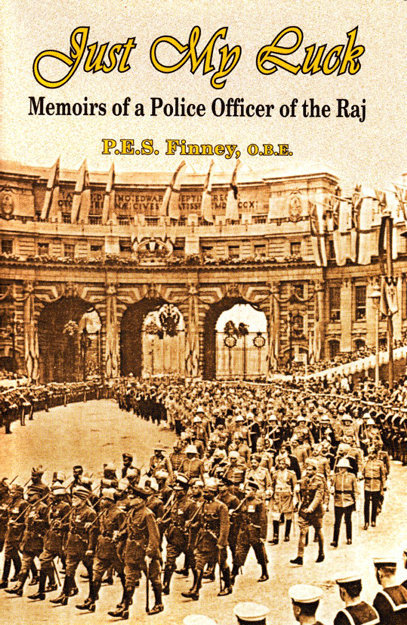
- Shop
- Autobiography, Biography and Memoirs
- Just My Luck: Memoirs of a Police Officer of the Raj
Just My Luck: Memoirs of a Police Officer of the Raj
https://uplbooks.com/shop/9840515470-just-my-luck-memoirs-of-a-police-officer-of-the-raj-6510 https://uplbooks.com/web/image/product.template/6510/image_1920?unique=a38508b
| Language: English |
Tags :
Book Info
The First World War had wrought a revolution in people's ideas of equality and liberty everywhere. In India, the Home Rule agitation had heightened political awareness and ambition across the length and breadth of the country under the British Raj. The Rowlatt Bill (1919), based on the controversial recommendation of the Rowlatt Committee, was enacted to deal with acts of sedition on the lifting of the Defense of India Act after the war. This was the backdrop when Philip Finney joined the Bengal Police in 1924. For 23 years Philip Finney had an interesting and often exciting career in Bengal Police, particularly because it was during a period when India, and Bengal in particular, was in turmoil and in the grip of the terrorist movement. These memoirs will provide an insight into the action taken by the British Raj in dealing with terrorists, communists and nationalist revolutionaries. They also provide information about life in rural Bengal, district towns and cities as well as details of the normal policing duties in these areas. Numerous accounts have been published on this forgotten chapter of Indian history drawing upon hitherto unpublished extracts from police records, interviews and archival material now in the public domain, but here is a firsthand account of what went on in the mind of a British field administrator. During the Second World War Philip Finney worked in Military Intelligence in the UK and India, largely in counter-espionage and, in particular, dealing with the attempts of the Axis Powers to set up spy networks in India. He accompanied the Fourteenth Army in its drive into Burma towards the end of the war. One of his most challenging tasks at that time was dealing with members of Subhas Bose's Indian National Army who had joined forces with the Japanese and had fallen into Allied hands. After the war, Philip Finney was Deputy Director of the Central Intelligence Bureau in Delhi, in which position he was privileged to have an inside view of the events leading up to Partition. His memoirs provide a fascinating insight into the parts played by some of the principal actors during that critical period and the political maneuverings that took place on the eve of Partition. He left India in 1947.

P.E.S. Finney
Born in 1905 Philip Finney joined the Bengal Police in 1924 and, apart from a spell in Military Intelligence during the Second World War, was there until 1947, when he returned to the UK. He had a distinguished career, being awarded the OBE (Order of the British Empire) in 1934 and being the leader of the Indian Police contingent to the Coronation of King George VI in London in 1937. After leaving India, he then spent six years in Central Africa, as head of the Special Branch of the Nyasaland Police. Married to Noel Montgomery, he had two daughters and a son. He died in 1980.


